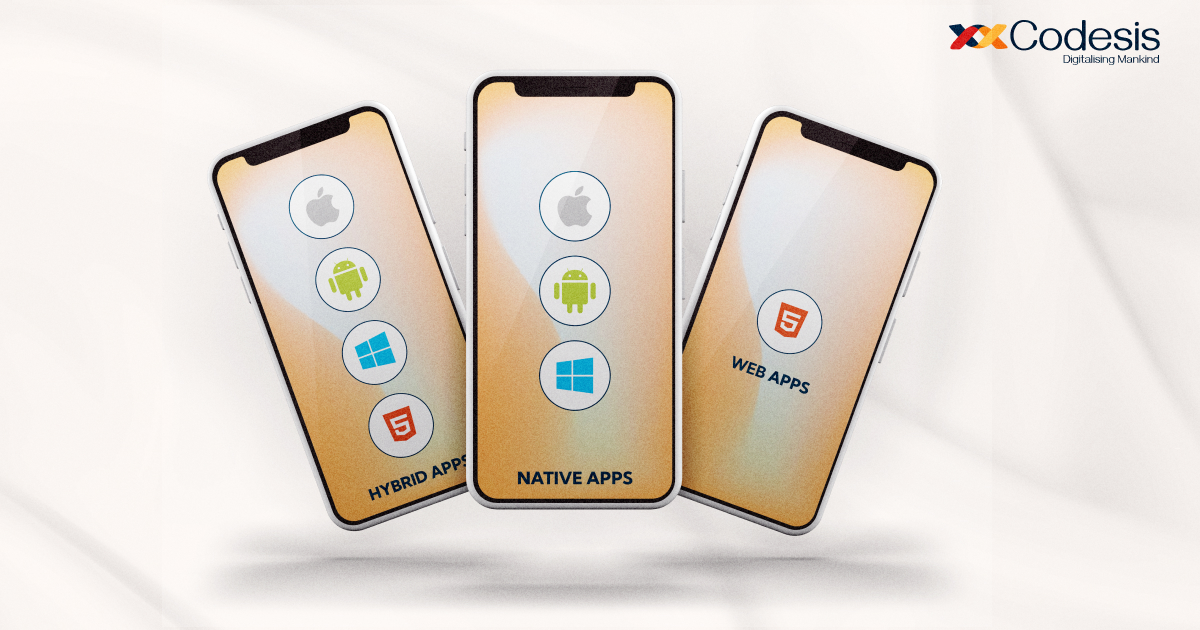Types of Mobile Applications: The Definitive Guide You Need in 2024 Scroll Down to Read Introduction to types of Mobile Applications: Do you own a business? and unsure about what types of mobile applications to select for your company. You have arrived at the correct source for the information you require. We have established this blog to provide you with comprehensive guidance on selecting the most suitable app categories and types for your company. In today’s digital landscape, mobile apps have become essential tools for businesses to thrive, boost efficiency, and engage with customers. Selecting the right types of mobile applications is crucial for success. Android and iOS are the two main platforms we create apps for. Mobile apps come in various categories, each with distinct advantages. This blog explores these app types to help you choose the best fit for your business. What is a Mobile app? Smartphones, tablets, and other handheld devices have mobile applications specifically crafted for them as software. These apps serve a wide array of purposes and have become essential in our modern lives. Mobile app development is the process of designing, coding and testing these applications, with a primary focus on delivering a seamless user experience. Mobile app development companies employ knowledgeable app developers who leverage technology and dedicated app development software like Android Studio for Android apps and Xcode for iOS apps. Why Mobile applications are important for your business in today’s Digital era? Mobile applications are essential tools in today’s digital era, They offer: Now, let’s take a look at the different types of mobile apps: What are the types of Mobile Applications by Technology? Based on the coding technology, there are three primary types of mobile applications: 1. Native applications: Special operating systems, such as Android and iOS, have native apps created for them, renowned for their exceptional functionality and smooth interaction with the device’s hardware and software. Technology Used: Developers use programming languages such as Java, Kotlin, Python, Swift, Objective-C, C++, and React to code native applications. Some key characteristics of native apps include: PROs of native apps: Cons of native apps: When to choose Native apps? 2. Web applications: Users can access web apps, which are mobile-optimized websites, through a web browser without downloading and installing them. Web apps are platform-independent, meaning they can run on any device with a web browser. They are also easier and cheaper to develop compared to native apps. However, they have limited access to the device’s hardware and features, and they require an internet connection to function. Technology Used: Developers use HTML5, CSS, JavaScript, Ruby, and similar programming languages for creating web apps. Pros of Web applications: Cons of Web Applications: When to choose web applications? 3. Hybrid applications: Well, The goal of hybrid apps is to blend the best of web and native applications. App stores distribute apps created with web technologies and packaged in native containers. Technology Used: Hybrid apps use a mixture of web technologies and native APIs. the hybrid apps and created using Ionic, Objective C, Swift, HTML5, and other programming languages. Pros of Hybrid Applications: Cons of Hybrid applications: When to choose Hybrid applications: 1. Progressive web apps (PWAs): Progressive Web Apps, or PWAs, are web apps that utilise modern web technologies to give consumers an app-like experience. They are accessible via a web browser and they function flawlessly on all platforms and devices, including desktop and mobile. Push notifications, offline operation, and home screen installation are just a few of the advantages that PWAs offer. They fill the gap between web and native apps by fusing the improved functionality and user experience of traditional apps with the accessibility and ease of web distribution. PWAs have benefits like enhanced performance, cross-platform compatibility, and smooth updates and are developed with web technologies like HTML, CSS, and JavaScript. Examples of apps created using PWAs 2. Gaming apps: Gaming apps are one of the most popular types of mobile apps. These apps are designed for entertainment purposes and offer a wide range of games, from simple puzzles to complex multiplayer games. Gaming apps often have in-app purchases and advertisements as a source of revenue. Gaming apps also offer a variety of features to enhance the gaming experience. These features may include leaderboards, achievements, and social sharing capabilities. Some gaming apps also offer virtual reality or augmented reality experiences, providing a more immersive gaming experience. Gaming apps can be downloaded and installed from app stores and typically require an internet connection to play, although some games offer offline gameplay as well. These apps have become increasingly popular, offering entertainment, escapism, and social interaction for gamers of all ages. Examples of Gaming apps? A few Famous examples of gaming apps are Candy Crush Saga, Roblox, PUBG mobile, Clash Royal, Etc. 3. Business apps: Business apps, sometimes referred to as productive apps, are software programs made to improve productivity and simplify processes in a company setting. These applications include many different features, such as platforms for human resources (HR), project management tools, CRM systems, accounting and financial software, communication and collaboration tools, and analytics and reporting tools. Business apps give organisations more power by streamlining communication, streamlining tasks, increasing efficiency, organising data, and offering insightful data that helps with decision-making. They are essential for streamlining processes, boosting teamwork, and helping companies boost their productivity. Examples of Business Apps: A few examples of business apps are 4. Utility apps: Often referred to as tools or handy apps, utility apps are software programs created to offer certain features or utilities that help users complete everyday tasks or find solutions to particular issues. These applications are useful for: file management, device optimisation, system maintenance, security and privacy, increasing productivity, and simplifying everyday activities. Functionalities like file compression, data backup, password management, QR code scanning, language and currency translation,… Continue reading Types of Mobile Applications: The Definitive Guide You Need in 2024
Types of Mobile Applications: The Definitive Guide You Need in 2024
